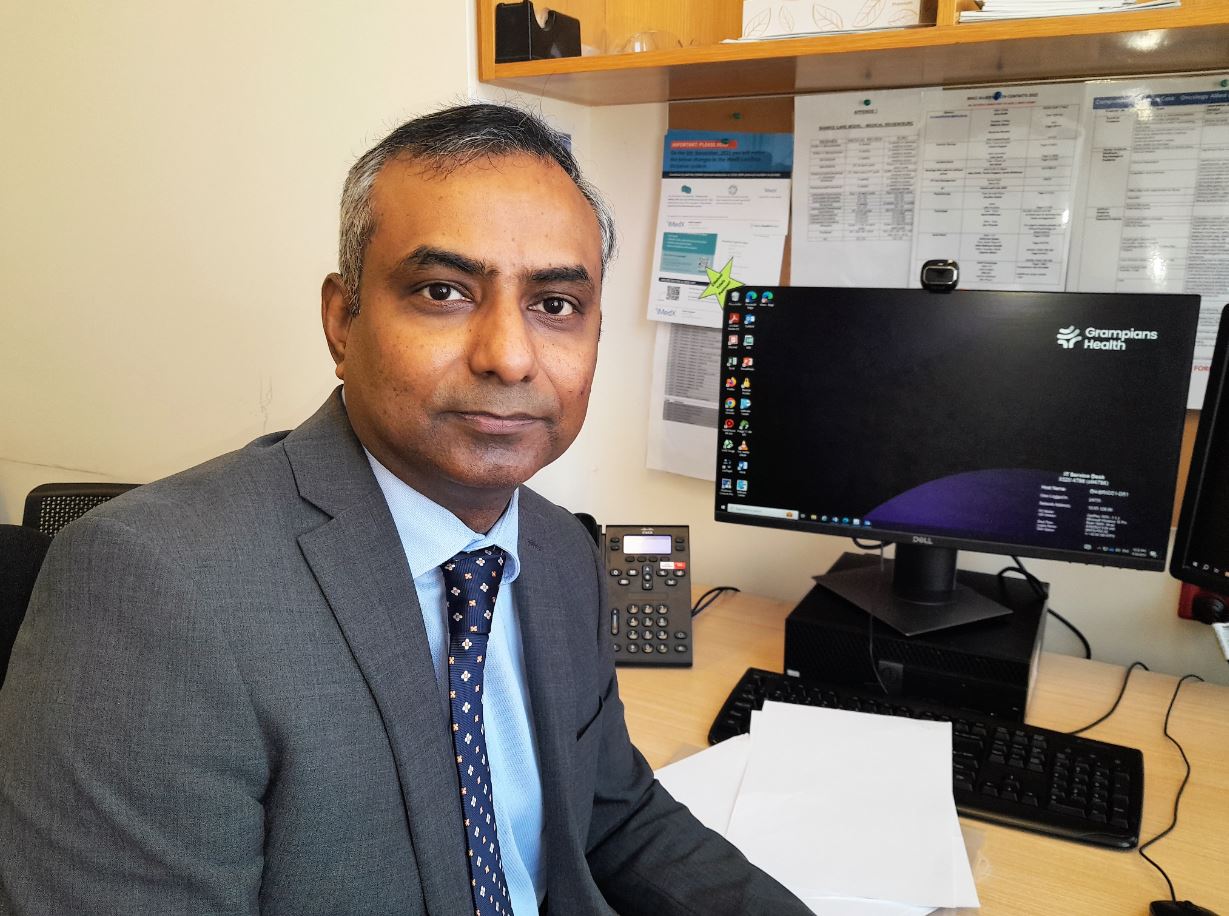Fellowships with the prestigious college recognise clinical achievement, confer international peer recognition and present enhanced professional opportunities to contribute to standard-setting and policy influencing activities.
“It’s a wonderful honour to see one of our doctors presented with a fellowship to the prestigious Royal College of Physicians of Edinburgh. It’s a great recognition of both Dr Faisal’s hard work over the years, as well as showcasing the world-class health care that’s available in regional Victoria,” Grampians Health’s Chief Medical Officer Professor Matthew Hadfield said.
Dr Faisal has been specialising in medical oncology for over 11 years with his area of expertise being thoracic malignancies and rare tumours. He has been running clinical trials at Grampians Health since 2017.
As well as being awarded this prestigious fellowship, Dr Faisal received an Inspirational Research Grant from the Thoracic Oncology Group of Australia (TOGA) to continue his research into lung cancer.
With over 50 clinical trials under his belt as Principal Investigator, Dr Faisal has gathered a team together to research wild-type, metastatic non-small cell lung cancer (mNSCLC), and finding ways to identify patients at risk of poorer outcomes. The study is looking to find ways to improve outcomes for regional patients and bridge the gap between metropolitan and regional patients.
“Non-small cell lung cancer is the fifth most common cancer in Australia and despite this, the mortality rate is the highest among all cancers,” Dr Faisal said.
While ground-breaking advances have been made with lung cancer management, non-small cell lung cancer (NSCLC) remains challenging to treat because it is not a single disease. NSCLC tumours are biologically different and show variable responses to current treatments.
“This research grant gives me and my team the ability to look at developing clinical tools to identify patients’ tumour biology which could help their prognosis and might help direct treatment for these patients,” Dr Faisal said.
The regionally-based Grampians Health service covers Ballarat, Dimboola, Edenhope, Horsham, Stawell and Dr Faisal’s team is well aware of some of the disparities regional and rural patients can face.
“Poorer clinical outcomes in regional patients compared to metropolitan patients also highlight the fact that treatment outcomes are not just dependent on tumour-factors, but also dependent on patient- and health-service-related factors,” Dr Faisal said.
Dr Faisal’s research project will focus on developing a clinical composite score for mNSCLC incorporating multiple factors to identify patients at risk of a poorer outcome, and build a solution in the regional setting to drive system-level change.
“Our study will combine tumour-factors, patient-factors and health service-related factors to develop a tool that identifies patients who might be at risk of poorer outcomes and creates the opportunity to co-design a solution to address this at a system level. This tool will be developed using data that has been collected on regional lung cancer patients in the Grampians region over the last six years, which to our knowledge, is the single largest regional lung cancer database in Australia,” Dr Faisal said.


